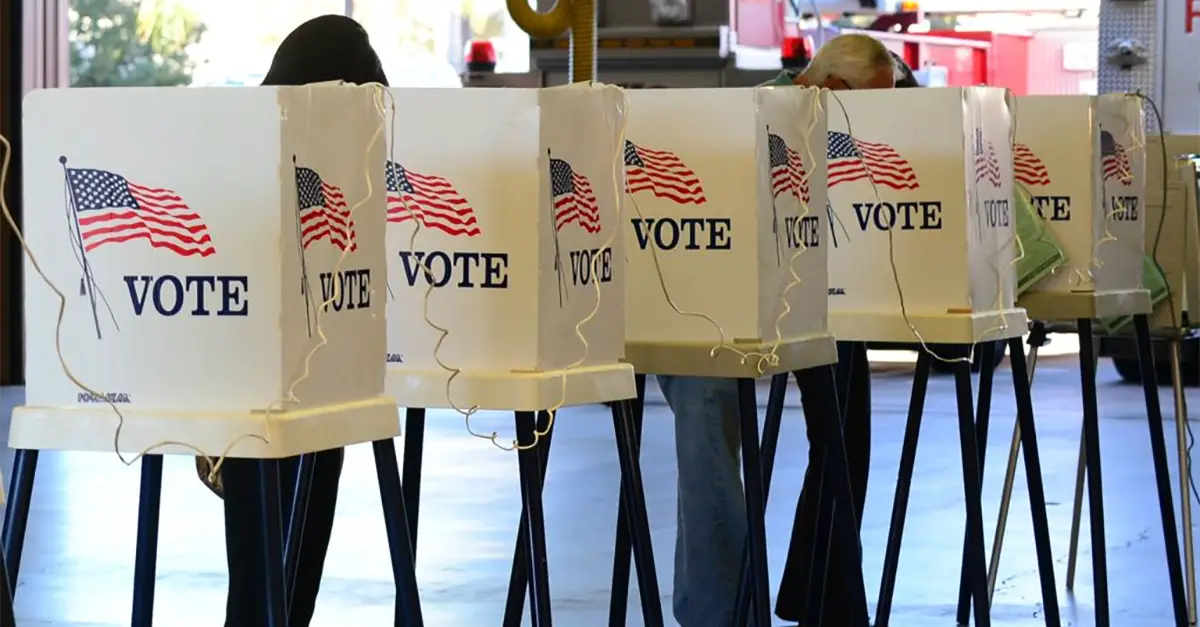The chaos of this election year is taking its toll on the political parties—and on America. A new poll shows large and growing discontentment. And that discontentment has been translated into depression—a feeling of helplessness and hopelessness. We just don’t think our vote counts. We don’t think our voice counts.
At least, that’s what a new poll says:
Americans feel disconnected from both the Democratic and Republican parties and helpless about the presidential election, a new poll finds.
Just 12 percent of Republicans and 25 percent of Democrats said their respective parties are very responsive to ordinary voters, according to a poll conducted by the Associated Press and the NORC Center for Public Affairs Research.
The poll also found that only small minorities of Americans have much trust in political parties, with 15 percent of Americans reporting a great deal of confidence in the Democratic Party and just 8 percent saying the same about the GOP.
For those old enough to remember, this sounds a lot like Jimmy Carter’s speech that America was in “malaise” back in 1979.
I invited to Camp David people from almost every segment of our society — business and labor, teachers and preachers, governors, mayors, and private citizens. And then I left Camp David to listen to other Americans, men and women like you. . .
This from a young woman in Pennsylvania: “I feel so far from government. I feel like ordinary people are excluded from political power.”
And this from a young Chicano: “Some of us have suffered from recession all our lives.”
. . . Our people are losing that faith, not only in government itself but in the ability as citizens to serve as the ultimate rulers and shapers of our democracy. . .
The symptoms of this crisis of the American spirit are all around us. For the first time in the history of our country a majority of our people believe that the next five years will be worse than the past five years.
Of course, in 1979, Americans felt powerless largely because of our position in the world: Iranian revolutionaries were holding American hostages, and we were forced to wait in lines to buy gas, due to the Arab Oil Embargo. This year our sense of alienation is internal, according to the Washington Examiner.
Many are crediting Americans’ widespread skepticism of political institutions for the unexpected popularity of anti-establishment presidential candidates Donald Trump and Bernie Sanders, who have both characterized themselves as outsiders and promised to shake up the status quo if elected president.
Trump in particular has spent his campaign sharply criticizing his party’s leaders — a tactic that helped invigorate his voting base to turn out at the polls and ultimately handed him the Republican presidential nomination.
And despite efforts by both parties to inspire voters, hopelessness is the prevailing attitude about the presidential race. Sixty percent of Republicans and 53 percent of Democrats feel helpless about the 2016 election, including two-thirds of voters under age 30. . .
Another AP poll released late last week similarly found that almost four out of 10 Americans have “hardly any” trust in the U.S. political system.
There’s a saying, if you knew how sausage was made, you might never eat sausage again. The saying is used to mean there’s such a thing as “too much information.” This year, we’ve seen the tactics of the Democratic Party, including front-loading the conservative southern states, and the infamous “Superdelates.” On the GOP side, we’ve seen cancelled primaries, places where the majority of the state’s delegates vote as they please, and meaningless primaries—because the delegates are really chosen at the state convention.
In 1979, Carter also offered a solution, suggested by his “focus group.”
“If you lead, Mr. President, we will follow.”
“Be bold, Mr. President. We may make mistakes, but we are ready to experiment.”
Sadly for Carter, it was Ronald Reagan who came into office in 1981, as a very strong leader. He told us it was “Morning in America,” and that we had a great future. It was like 1933, when the Great Depression had shaken Americans’ faith in the country.
So, first of all, let me assert my firm belief that the only thing we have to fear is fear itself—nameless, unreasoning, unjustified terror which paralyzes needed efforts to convert retreat into advance.
Maybe, in order to renew the faith of Americans, we’ll need a strong leader, like FDR or Reagan, elected through our current system—to show that, regardless of the “sausage making,” we will end up with a great leader. If we are happy with the outcome, maybe we’ll be less discouraged and disgusted with the process that put him–or her–there.
Donate Now to Support Election Central
- Help defend independent journalism
- Directly support this website and our efforts
